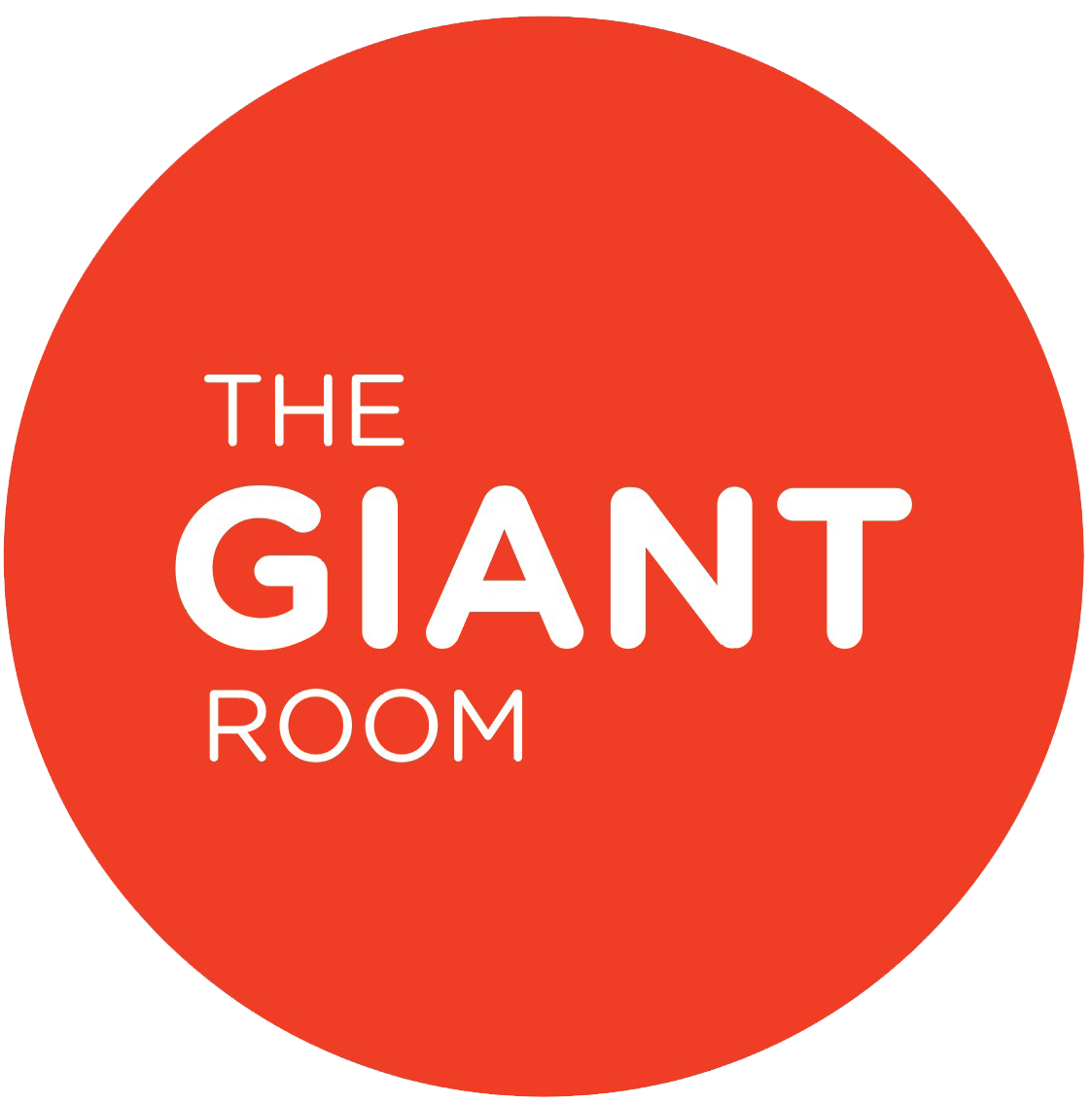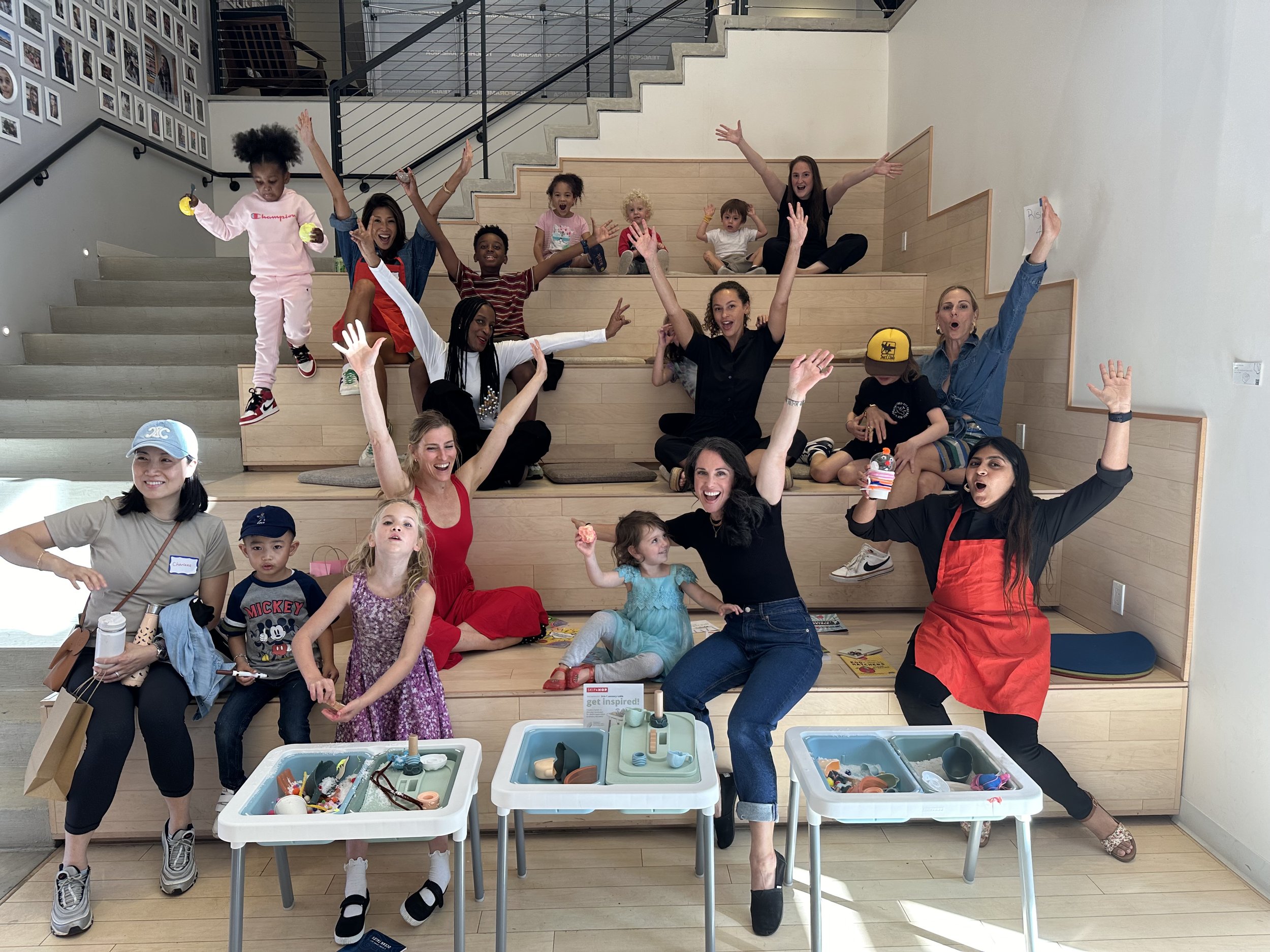Creative Sensory Play, GIANT Science Kits in Classrooms, A GIANT NYPL Remix, and more!
GIANT in the news:
GIANT X Skip Hop®: A Creative Sensory Experience
The GIANT Room had the pleasure of hosting a very special event for Skip Hop® where families were invited to come and try out their new Discoverosity 3-in-1 Sensory Tables! And if you have a curious and creative little one in your life, we have a very special offer, courtesy of Skip Hop® just for GIANT families! From now until September 30th, 2024, receive 20% off the Discoverosity 3-in-1 Sensory Table with the exclusive code: SENSORY20. You can click here for more details and order your sensory table!
The GIANT Room + Lysol® - A Very Special Media Event
In case you missed it, The GIANT Room has had the pleasure of working with Lysol® on developing their Minilabs Science Kits as part of Lysol’s HERE for Healthy Schools program!
The HERE for Healthy Schools program is intended to reduce school absenteeism through creating hands-on activities that are fun and engaging while teaching the science of germs, and better hygiene behaviors. Designed for grades 1 to 2, these kits are curated to educate students about the science of germs and encourage healthy hygiene habits.
NYC Kids Share Their Journeys in New GIANT Chapter Book!
The GIANT Room has completed another very fun GIANT Remix with the help of the New York Public Library, and hundreds of children from all across New York City!
Each summer the New York Public Library challenges kids ages 6 to 12 to submit to a writing competition. This summer’s theme was “a journey of discovery.” NYPL encouraged kids to share about a journey, trip, voyage, or quest from real life or their imagination. What adventures happen along the way? What do the characters in the story discover?
The GIANT AI Report
The fast-paced AI landscape may seem overwhelming, as we are constantly inundated with new developments and breaking news. The GIANT AI Report is here to break it down into digestible bite-sized pieces that are currently relevant to parenting and education.
‘A Solid Start’: States Are Crafting AI Guidance for Schools, But Have More to Do
Last spring, The GIANT Room had the opportunity to work with the NYC DOE and elementary and middle school teachers on a classroom AI Literacy guide. Nationwide, the progress in AI guidance for schools varies from state to state. When a new version of ChatGPT was released nearly two years ago, K-12 educators struggled to address the impact of artificial intelligence. Recent findings from the State Educational Technology Directors Association (SETDA) reveal that state education agencies are now making significant strides. This year, 59% of states have developed AI guidance, and 14% are working on broader AI initiatives such as teacher training and AI literacy. The U.S. Department of Education also released AI guidance for ed-tech vendors in July. Although progress has been made, education leaders acknowledge that there’s still much work ahead to keep pace with AI advancements.
Can AI Help a Student Get Into Stanford or Yale?
Whiles schools are racing to catch up on ways to most effectively introduce and implement AI into the classroom, students have already begun experimenting on their own. Two entrepreneurial Stanford students trained an AI model by inputting hundreds of essays, both strong and weak, to teach it what top-tier colleges look for in admissions essays.Esslo, an AI tool that offers detailed feedback on college essays, is unlike the more general advice from ChatGPT. Created by Stanford students Hadassah Betapudi and Elijah Kim, Esslo uses a dataset of successful admissions essays to provide targeted suggestions on improving essay content and avoiding clichés. While Esslo does not write essays or serve as a brainstorming tool, it helps students refine their drafts with feedback akin to what a parent or college counselor might offer. The goal is to enhance students' writing skills and align their essays with what colleges are seeking, similar to the guidance from an English teacher.
OpenAI releases o1, its first model with ‘reasoning’ abilities
OpenAI has unveiled a new AI model called o1, the first in a series designed for advanced reasoning tasks. This model, along with a more affordable version called o1-mini, offers improved problem-solving capabilities, particularly in coding and complex math problems. Unlike its predecessor GPT-4o, o1 uses a new training method involving reinforcement learning, making it better at tackling intricate issues and explaining its reasoning. However, o1 is slower and more costly to use, and while it excels in specific areas, it lacks the broad factual knowledge and web-browsing capabilities of previous models. This release marks a significant step toward OpenAI's goal of developing more human-like AI.
Face to face with Figure’s new humanoid robot
Last March, we spotlighted Figure’s humanoid robot performing some very human tasks. In the past 16 months, Figure, a robotics company, has made significant strides, expanding its team to 130 engineers and preparing for a move to larger facilities next year. Their latest model, Figure 02, showcases advancements in humanoid robotics, with improved designs and integrated components compared to its predecessor. Currently, Figure robots are being tested in automotive assembly, notably through a pilot program with BMW, and are set to return to the plant in January with an expanded fleet. The company is also exploring home applications, aiming to eventually offer robots at a consumer-friendly price point under $20,000. The new robot’s testing phase includes real-world scenarios, with Figure's ongoing work focusing on refining the robot's capabilities and preparing for its broader deployment.
The Godmother of AI Wants Everyone to Be a World Builder
Last November, we featured the Godmother of AI, Fei-Fei Li, in one of our first GIANT AI Reports. She is currently launching a new startup called World Labs, despite skepticism about the AI industry's future. World Labs aims to advance AI by creating systems that can construct detailed, physically accurate virtual worlds, moving beyond current language-based models. The company has already attracted $230 million in funding and is valued at $1 billion, with a product expected in about a year. Li’s team, including notable figures from AI research, is working on models that could revolutionize fields like robotics and augmented reality by incorporating spatial intelligence and deep physical understanding. The success of World Labs could determine whether this innovative approach becomes a significant breakthrough or just another fleeting trend.
Thank you for riding the AI roller coaster with us! While the news is ever-evolving, The GIANT Room will help you to stay in the (sometimes sideways and upside-down) loop! We are working on ways to safely teach and promote AI literacy. Our Creative Bootcamps, Classroom and School-wide Remixes, and interactive co-design workshops and events apply AI in a fun and frictionless process where kids collaborate with AI and learn age-appropriate prompt engineering while co-designing GIANT Remixes. Have you checked out our GIANT Remixes? Get in the mix!




